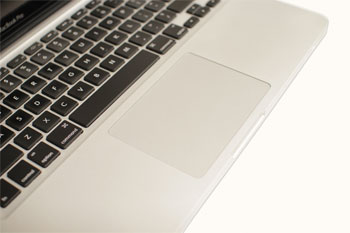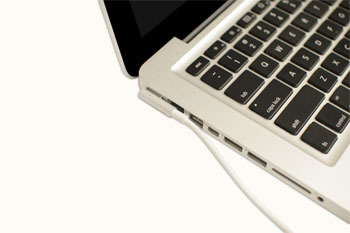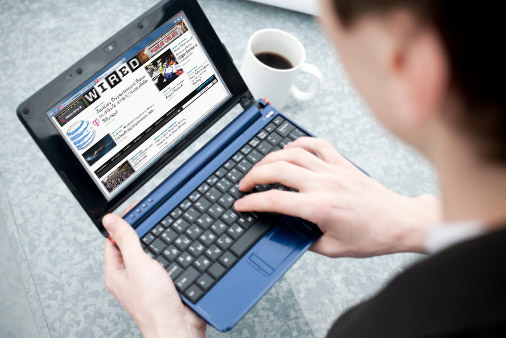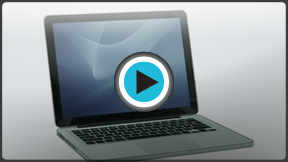
Computer Basics
Laptop Computers and Netbooks
What is a laptop computer?
A laptop is a personal computer that can be easily carried and used in a variety of locations. Many laptops are designed to have all of the functionality of a desktop computer, which means they can generally run the same software and open the same types of files. However, some laptops, such as netbooks, sacrifice some functionality in order to be even more portable.
Watch the video to learn about the basic parts of a laptop computer.
How is a laptop different from a desktop?
Because laptops are designed for portability, there are some important differences between them and desktop computers. A laptop has an all-in-one design, with a built-in monitor, keyboard, touchpad (which replaces the mouse), and speakers. This means it is fully functional, even when there are no peripherals attached to it. A laptop is quicker to set up, and there are fewer cables to get in the way.
There also is the option of connecting a regular mouse, larger monitor, and other peripherals. This basically turns your laptop into a desktop computer, with one main difference: You can easily disconnect the peripherals and take the laptop with you wherever you go.
Here are the main differences you can expect with a laptop:
 A touchpad on a laptop
A touchpad on a laptop An AC adapter plugged into a laptop
An AC adapter plugged into a laptop- Touchpad: A touchpad (also called a trackpad) is a touch-sensitive pad that lets you control the pointer by making a "drawing" motion with your finger. Many touchpads now include multi-touch gestures, which allow you to perform specific tasks by making gestures with more than one finger. For example, a pinch gesture is often used to zoom in or out.
- Battery: Every laptop has a battery, which allows you to use the laptop when it's not plugged in. Whenever you plug in the laptop, the battery recharges. Another benefit of having a battery is that it can provide backup power to the laptop if the power goes out.
- AC adapter: A laptop usually has a specialized power cable called an AC adapter, which is designed to be used with that particular kind of laptop. Some of these cables use magnetic MagSafe connectors that will safely pull out if someone trips over the power cable. This helps to prevent damage to the cable and the laptop.
- Ports: Most laptops have the same types of ports that desktop computers have (such as USB), although they usually have fewer ports to save space. However, some ports may be different, and you may need an adapter in order to use them. For example, the monitor port is often a Mini DisplayPort, which is a smaller version of the normal DisplayPort.
Because some ports have a similar appearance, you may need to look at your manual to determine what types of ports your laptop has.
What is a netbook?
A netbook is a type of laptop that is designed to be even more portable. Netbooks are often cheaper than laptops or desktops. They are generally less powerful than other types of computers, but they provide enough power for email and Internet access, which is where the name "netbook" comes from.
In order to save space, netbooks generally have smaller screens and keyboards. Many netbooks also lack certain hardware such as optical drives. However, there are many different models available, and in some cases there isn't much of a difference between a large netbook and a "regular" laptop.
 Using a netbook
Using a netbookSince netbooks are less powerful, they sometimes use a more simplified operating system. Many new netbooks use Windows 7 Starter, but some use simplified versions of Linux.
Challenge!
- If you've used a laptop computer before, think about some of the ways it was different from a desktop computer. Was it easier or more difficult to use?
- What are some of the advantages of using a laptop or netbook? Are there any disadvantages?
- If you are thinking about buying a laptop, think about how you would use it. Are there any parks, coffee shops, or bookstores where you could use your laptop?
- Would a laptop, netbook, or tablet computer work best for you?
